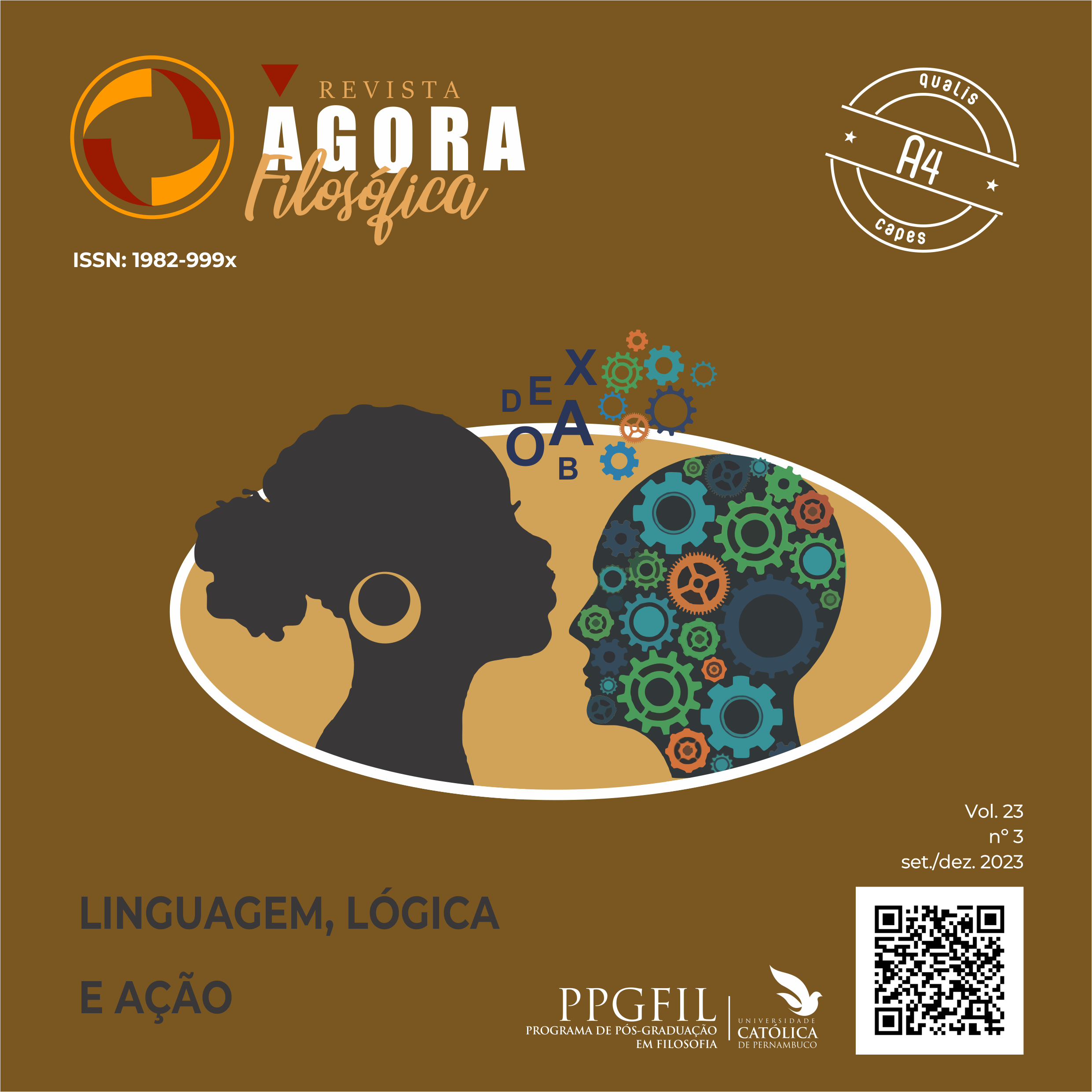Nietzsche and Freud: God's death between mourning and melancholy
DOI:
https://doi.org/10.25247/P1982-999X.2024.v24n1.p116-135Keywords:
Nietzsche, Freud, Primal father, murder of GodAbstract
In A Gaia science Nietzsche attributes two senses to the death of God: first as murder, then as the emergence of a new dawn, the harbinger of new hope. In the case of murder and not simply death, one can ask whether the act denounced by him could be thought of in the perspective of the murder of the primeval Father, the founding myth elaborated by Freud; as dawn and openness to new hopes, seems to imply a work of mourning to be consummated with the transvaluation of morals. This article undertakes a reflection on these two perspectives in order to put philosophy and psychoanalysis in dialogue. Under the hypothesis that the death of God is the repetition of the murder of the Primordial Father, the problematic of mourning and melancholy as possible destinations of Nietzsche’s project.
Downloads
References
FEUERBACH, L. Princípios da filosofia do futuro. Tradução: Artur Morão. Lisboa: 70, 1843.
FOUCAULT, Michel. Nietzsche, a genealogia e a história. In: Foucault. Microfísica do poder. Tradução: Roberto Machado. Rio de Janeiro: Graal, 1979, p. 15-37.
FREUD, Sigmund. Totem e tabu. Tradução: Paulo César de Souza. São Paulo: Companhia das Letras, 2010a.
FREUD, Sigmund. Luto e melancolia. Tradução: Paulo César de Souza. São Paulo: Companhia das Letras, 2010b.
FREUD, Sigmund. Introdução ao narcisismo. Tradução: Paulo César de Souza. São Paulo: Companhia das Letras, 2010c.
FREUD, Sigmund. Autobiografia. Tradução: Paulo César de Souza. São Paulo: Companhia das Letras, 2011a.
FREUD, Sigmund. O eu e o id. Tradução: Paulo César de Souza. São Paulo: Companhia das Letras, 2011b.
FREUD, Sigmund. Psicologia das massas e análise do Eu. Tradução: Paulo César de Souza. São Paulo: Companhia das Letras, 2011c.
FREUD, Sigmund. O futuro de uma ilusão. Tradução: Paulo César de Souza. São Paulo: Companhia das Letras, 2014.
KANT, Immanuel. Resposta à pergunta: “que é Esclarecimento”. In: KANT, Immanuel . Textos seletos. Tradução: Emmanuel Carneiro Leão. Petrópolis: Vozes, 2005.
LACAN, Jacques. Os quatro conceitos fundamentais da psicanálise. Tradução: M. D. Magno. Rio de Janeiro: Zahar, 2008.
NIETZSCHE, Friedrich. A gaia ciência. Tradução: Paulo César de Souza. São Paulo: Companhia das Letras, 2001.
NIETZSCHE, Friedrich. Genealogia da moral: uma polêmica. Tradução: Paulo César de Souza. São Paulo: Companhia das Letras, 1998.
NIETZSCHE, Friedrich. A vontade de poder. Tradução: Marcos Sinésio Pereira Fernandes; Francisco José Dias de Moraes. Rio de Janeiro: Contraponto, 2008.
NIETZSCHE, Friedrich. Além do bem e do mal: prelúdio a uma filosofia do futuro. Tradução: Paulo César de Souza. São Paulo: Companhia das Letras, 2005.
NIETZSCHE, Friedrich. “O niilismo europeu”. In: NIETZSCHE, Friedrich. A vontade de poder. Tradução: Marcos Sinésio Pereira Fernandes; Francisco José Dias de Morais. Rio de Janeiro: Contraponto, 2008.
NIETZSCHE, Friedrich. Ecce homo: como alguém se torna o que é. Tradução: Paulo César de Souza. São Paulo: Companhia das Letras, 2008.
SADE, Marquês de. A filosofia na alcova ou os preceptores morais. Tradução: Augusto Contador Borges. São Paulo: Iluminuras, 2000.
Downloads
Published
Issue
Section
License
Copyright (c) 2024 Reginaldo Oliveira Silva

This work is licensed under a Creative Commons Attribution 4.0 International License.
You are free to:
- Share — copy and redistribute the material in any medium or format for any purpose, even commercially.
- Adapt — remix, transform, and build upon the material for any purpose, even commercially.
- The licensor cannot revoke these freedoms as long as you follow the license terms.
Under the following terms:
- Attribution — You must give appropriate credit , provide a link to the license, and indicate if changes were made . You may do so in any reasonable manner, but not in any way that suggests the licensor endorses you or your use.
- No additional restrictions — You may not apply legal terms or technological measures that legally restrict others from doing anything the license permits.
Notices:
You do not have to comply with the license for elements of the material in the public domain or where your use is permitted by an applicable exception or limitation .
No warranties are given. The license may not give you all of the permissions necessary for your intended use. For example, other rights such as publicity, privacy, or moral rights may limit how you use the material.
















